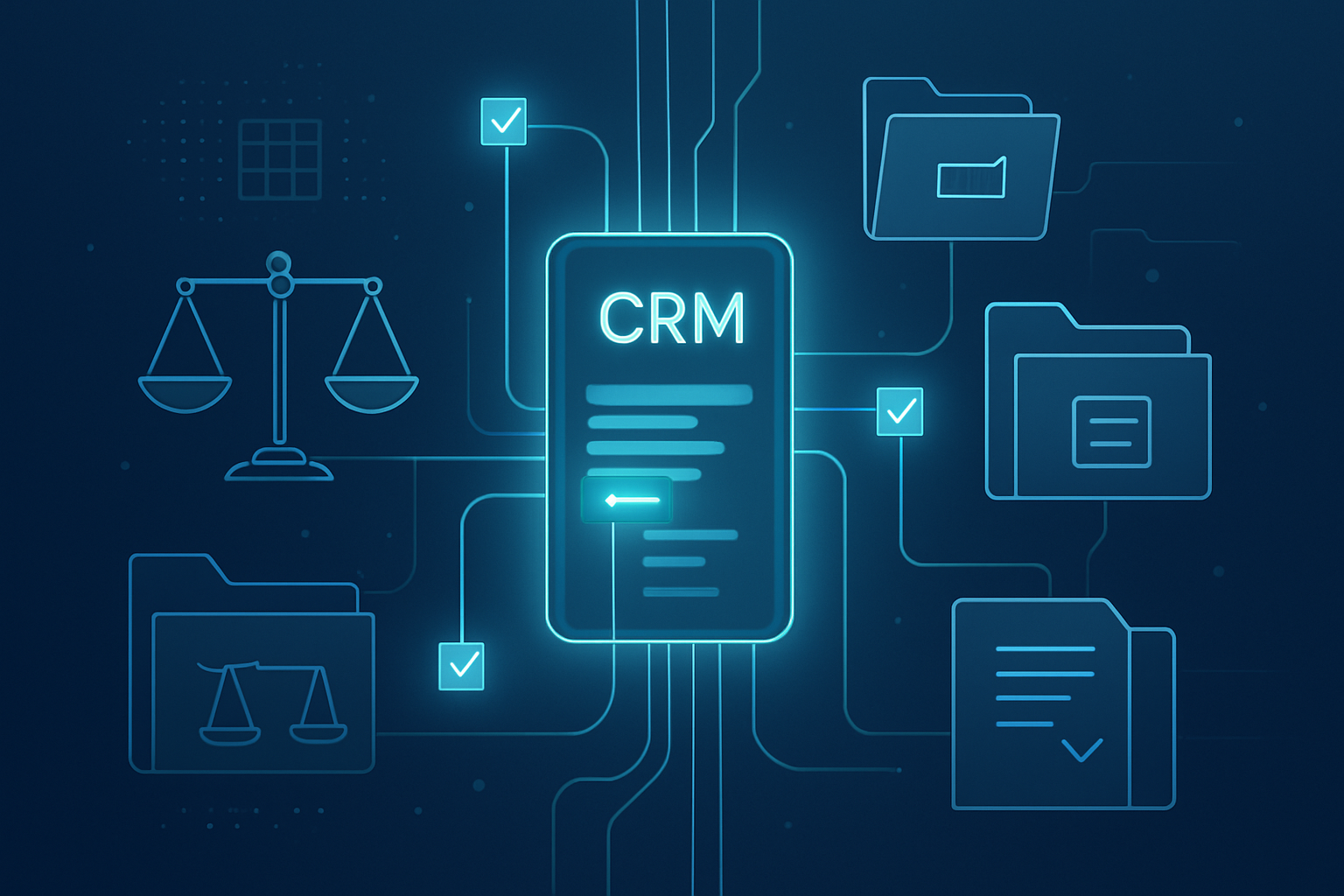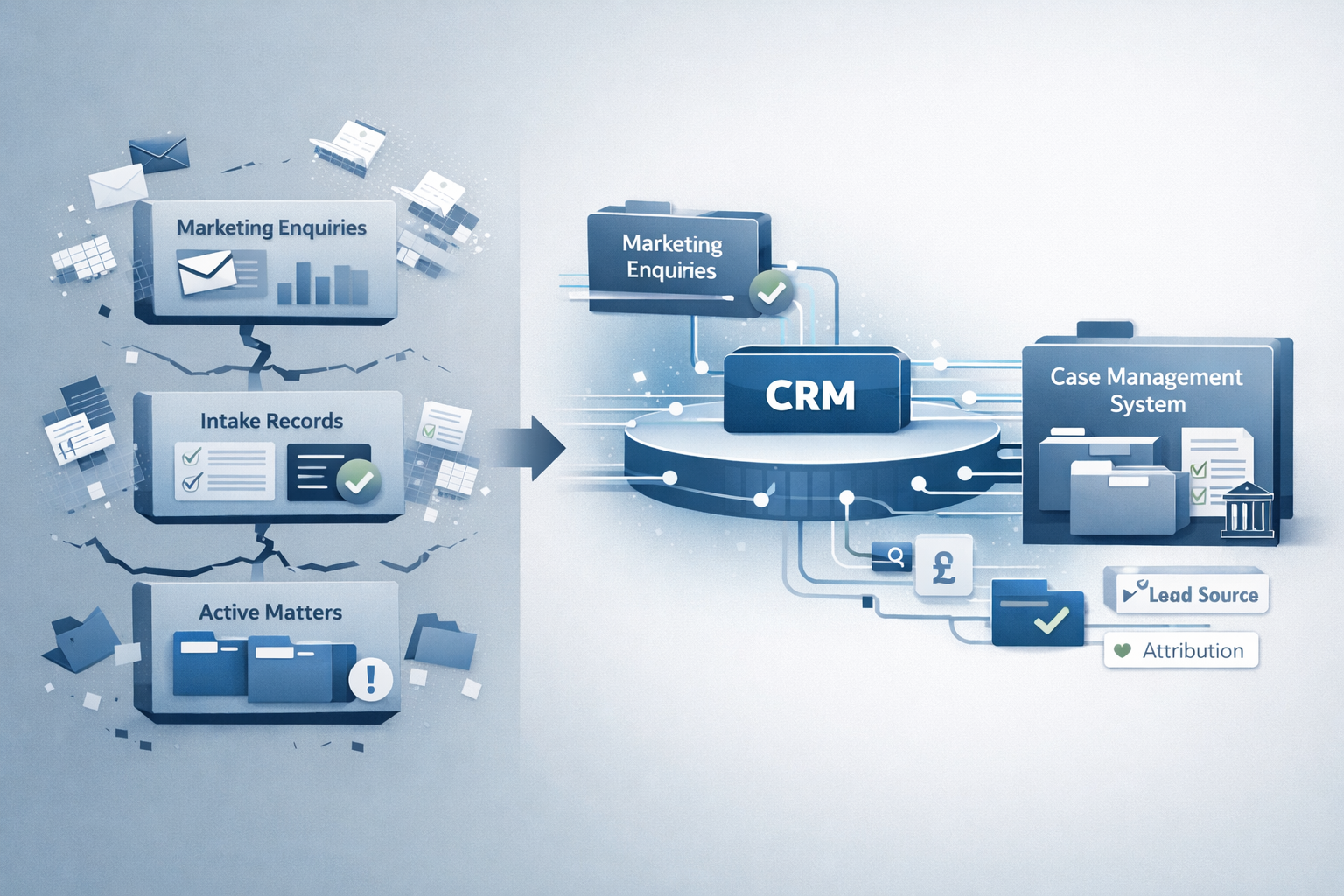How regulated sectors can adopt AI
AI
Legal Sector
Financial Planning

For those in the legal and financial sectors, AI has shifted from a future consideration to a part of everyday work. The gains are clear: streamlined workflows, faster responses and sharper insights mean it’s now a routine (and highly efficient) part of how work gets done.
But the challenge is equally clear. Strict regulation, complex governance and an unforgiving margin for error leave little room for missteps, and it’s led many to believe that strict rules make innovation impossible.
The reality is different. Yes, the UK’s regulatory landscape is rigid, but it’s not immovable. With the right approach, AI and other emerging tools can be introduced without breaching the rules, provided adoption is planned, structured, and led by compliance from day one.
This article looks at the opportunities for AI in legal and financial planning, the factors that make adoption in regulated sectors demanding, and the practical steps that support safe, effective implementation.
Why modernisation matters more than ever
Workloads in legal and financial planning practices are expanding, client expectations are high, and reporting requirements are becoming more intricate. Manual processes — even when carefully managed — often lead to bottlenecks.
AI offers clear operational benefits for professional services companies.
In law firms, for example, AI-powered contract review can flag clauses that fall outside standard terms before they develop into costly problems, reducing both risk and time spent on manual checks.
In financial planning firms, machine learning models can scan large volumes of client data and identify patterns that may signal compliance issues, portfolio imbalances, or unusual financial activity. This helps firms address potential problems early and maintain regulatory standards.
These tools allow professionals to focus on strategic planning, client relationships, and judgement calls that require human insight. With careful design, AI adoption can lead to timely service, informed decisions, and consistent risk management.
Why regulated sectors face a tougher path
Both sectors operate under rules designed to safeguard clients, market stability, and professional integrity.
For solicitors, the SRA applies established professional principles to all technologies. Three principles are especially pertinent to questions of AI:
- Principle 2: Uphold public trust and confidence.
- Principle 5: Act with integrity.
- Principle 7: Act in each client’s best interests.
These standards apply whether AI is reviewing case documents or automating appointment scheduling.
For financial planners and advisers, the Financial Conduct Authority (FCA) Handbook requires accuracy, transparent decision-making, and strong governance in all client interactions and recommendations.
In both professions, AI adoption demands close attention to considerations like data protection - all systems must comply with UK GDPR and the Data Protection Act 2018.
- Data protection — Systems must comply with UK GDPR and the Data Protection Act 2018.
- Explainability — AI outputs must be clear and justifiable, particularly when supporting recommendations or automated decisions.
- Compliance integration - AI should align with existing governance, record-keeping and reporting frameworks.
Additional considerations for regulated AI adoption
The SRA expects firms to take active steps to manage the operational risks that come with AI. This means training staff so they understand the technology’s limitations and know when human review is required.
It also means putting clear compliance leadership in place, for example, by appointing a Data Protection Officer or similar role to oversee governance. Firms should carry out regular risk assessments, complete Data Protection Impact Assessments, keep detailed activity logs, and ensure they're always prepared for audit.
The Information Commissioner’s Office (ICO) also has an important role. It provides guidance, resources tailored to specific sectors, and sandbox environments where firms can trial AI systems safely before deploying them more widely.
The privacy puzzle
AI systems have the capacity to process large volumes of personal data, which increases the risk of breaching privacy rules or ethical duties. Under UK GDPR:
- Personal data must be processed lawfully, fairly, and transparently.
- Special category data requires explicit consent or a clear legal basis.
- Fully automated decisions generally require explicit consent unless a legal exemption applies.
Privacy compliance forms part of the foundation for AI adoption and should be established at the start of any project.
A safer, structured route to AI adoption
Successful AI adoption in regulated sectors begins as a governance-led initiative. Here’s how to get there.
- Assess your baseline — Map high-risk workflows and sensitive data use.
- Evaluate vendors carefully — Look at security credentials, privacy policies, and experience with regulated clients.
- Design safeguards — Build in audit trails, approval steps, and human checks for critical decisions.
- Train teams — Cover both system use and the regulatory reasoning behind it.
- Review regularly - Update processes as laws and technologies evolve.
Move forward with confidence in AI adoption
Adopting AI in regulated sectors demands more than technical expertise — it requires governance, compliance, and cultural alignment from day one. With strong safeguards in place, your firm can unlock efficiency, strengthen client trust, and stay ahead of market expectations.
At Karman Digital, our AI and HubSpot consultants help legal and financial organisations:
-
Map compliance risks and uncover opportunities
-
Select and configure tools built for regulated environments
-
Deliver change programmes that embed adoption without disrupting service
Book your consultation today and take the first step toward safe, successful AI adoption.


